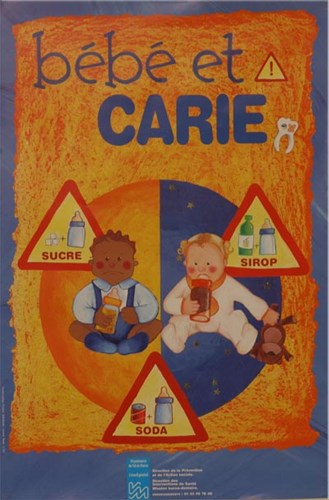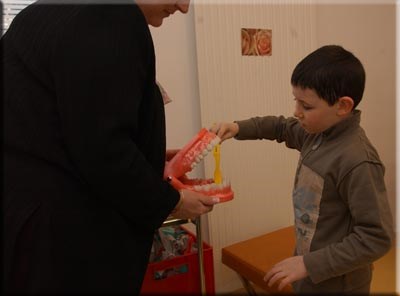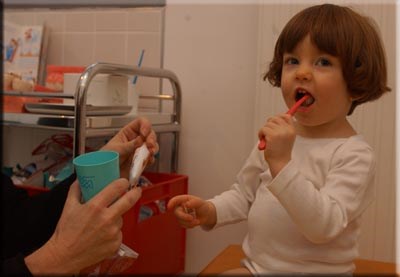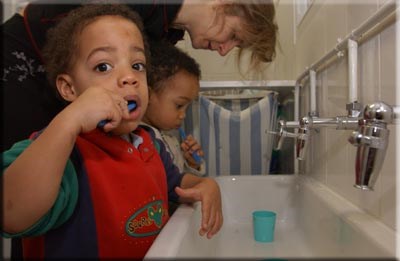France - A School Based Oral Health Education Programme
France - A School Based Oral Health Education Programme
Introduction
There are 47 towns and 1.23 million residents in the urban department of Val de Marne which lies on the south-east of Paris, France. In 1991, a dental public health service was created and a caries prevention programme targeting children in the age group of 0-11 years were initiated. This presentation is based on the publication by Dr C Adam, Dr A Eid, Dr PJ Riordan, Dr M Wolikow, and Dr F Cohen in 2005.

Background and Rationale
Several studies suggest that the oral health of young children (6-year-olds) in France were poor when compared to neighbouring countries in Europe. Studies in France showed in 1987 and 1991 32.2% and 46.8% of 6-year-olds respectively were caries free when compared to 78% of Finnish (1993) and 60% of Swedish (1991) 5-year olds. In France, except for the fluoridation of domestic salt, there are no real national dental public health programmes available. Hence in 1991 the department of Val de Marne initiated a school-based oral health education intervention programme targeting young children (5-11 years).

oral health education
Project Outline
In order to access young children, the programme included day care facilities, medical centres for very young children called 'centre de protection maternell et infantile (PMI)' and two types of primary schools - 'maternelle' school for 3-5-year-olds and elementary school for 6-11-year-olds.
General information on caries prevention was provided to the staff of the PMI centres and day care facilities.
Volunteers were specially trained to become 'dental resource persons' capable of providing knowledge related to oral health and dental education in these centres and facilities.
These volunteers formed a network covering the whole area and worked in close co-operation with the public health service.
Parents and children attending the centres received dietary and oral hygiene counselling.
The 5-year-olds in the maternelle' schools were given oral health education by dentists and tooth brushing sessions were supervised by school staff.
In the elementary schools, children received an annual session of oral health education by dentists and twice monthly fluoride rinsing was initiated.
In order to monitor the programme three epidemiological surveys were scheduled for 1991, 1995 and 2000.

time to start brushing my teeth..
Achievements
The following results were from cross-sectional clinical examinations in schools of 1061, 1263 and 1225 6-year-old children in 1991, 1995 and 2000 respectively.
- The caries experience among 6 year old children went down from 38.9% in 1991 to 30.6% and to 22.2%, 1995 and 2000 respectively.
- The dft decreased from 1.74 to 1.39 and 1.05 respectively during these years.
- Nearly 75% of children had untreated caries in all three years of study.

mmm clean and fresh
Conclusion
Caries is a multifactorial disease and some factors not recorded in this programme such as the type of toothpaste used, use of fluoridated salt, diet and other physiological factors may have played a role in the observed reduction in the caries experience.
Although caries experience among the 6-year-old-children reduced over the period of nine years of observation, 75% of the children had untreated caries reflecting perhaps the high cost of dental care and the complex health insurance system in France. The authors believe that there is a need for change in the dental care delivery system for children in France.

this is fun..
Acknowledgment
We thank Dr Cohen and co-workers for helping us with this presentation and for providing pictures of the programme.
Reference
Adam C, Eid A, Riordan PJ, Wolikow M, Cohen F. Caries experience in the primary dentition among French 6-year-olds between 1991 and 2000. Community Dent Oral Epidemiol. 2005;33:333-40. Abstract PubMed.
